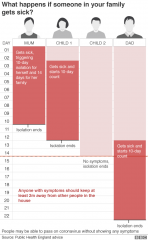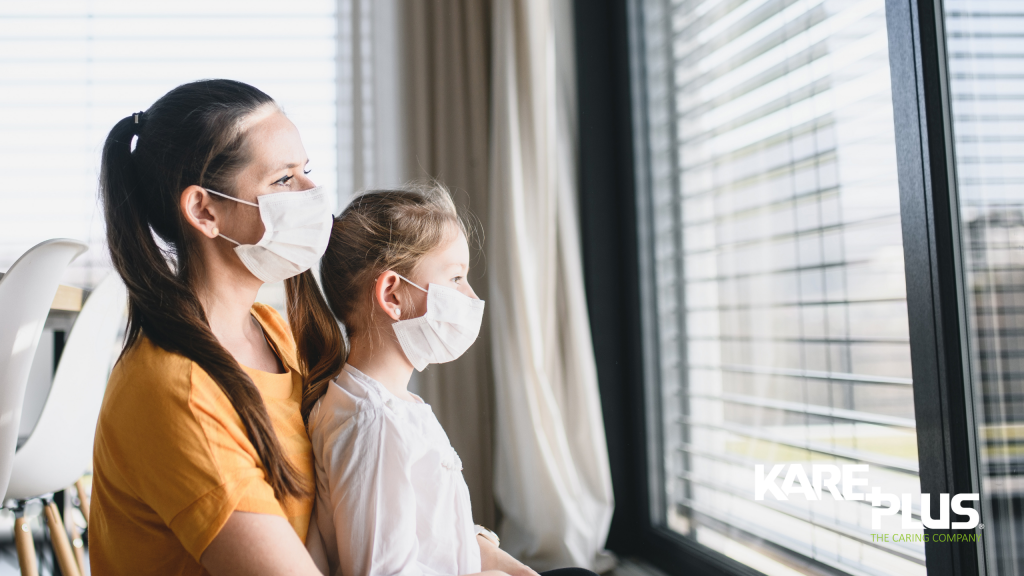COVID-19: What Is Self-Isolation And Who Has To Do It?
Wednesday, September 30th, 2020 | News
Some people need to self-isolate as part of the UK's efforts to limit the spread of coronavirus. Fines are being introduced for those who break the rules.
When do I need to self-isolate?
You should self-isolate if:
- You have Covid symptoms - a new continuous cough, high temperature, or change in sense of taste or smell
- You test positive for Covid-19
- You live with someone who has symptoms, or is ill
- You arrive in the UK from one of a number of countries which aren't exempt from quarantine rules
- You are contacted by NHS Test and Trace to say you have been in close contact with someone who has tested positive
What does self-isolation mean?
Self-isolating means staying at home and not leaving it. You should not go out for any reason - even to buy food, medicines or other essentials, or for exercise. You should order online groceries, or ask friends or family to help out by getting what you need and leaving items outside your front door.
How are the rules enforced?
From 28 September, anyone in England who does not self-isolate after a positive test could be fined up to £10,000. In Scotland, you can be currently be fined £480 for breaking the rules, in Wales the fine starts at £60 and doubles for each further offence, and in Northern Ireland fines can be up to £1,000.
How long must I stay at home?
If you have Covid-19 symptoms, however mild, you should self-isolate for at least 10 days from when they started, and arrange to get tested. If you have no symptoms, but have tested positive for the disease, you must also self-isolate for at least 10 days. This starts from the day you took the test. If you develop symptoms during this time, you must restart your 10-day isolation.

If you still have a temperature after 10 days, you should continue to self-isolate, but can go out again if by then you only have a cough or loss of taste or smell. If you have coronavirus all other people in your household also need to self-isolate. They must not leave the house for 14 days from the day you first became ill, or - if you have no symptoms - from the day you had a test. If they then display symptoms, they must start a new 10-day isolation period from the day they first appear.
How do I self-isolate if I live with others?
If you have symptoms or test positive, you need to try to keep apart from other members of your household. You should stay in a well-ventilated room where you can open a window, but keep the door closed. You should also use a separate bathroom. If this is not possible, then you should use the bathroom after everyone else and clean it thoroughly afterwards. Meals should be eaten in your room and not in a shared area like the kitchen.
How do I self-isolate if I've travelled to the UK?
Anyone entering England, Scotland, Wales or Northern Ireland from somewhere not on that nation's exemptions list must self-isolate for two weeks from the day after they arrive. When you arrive in the UK, you must travel straight to the place where you will be staying.
You must provide the authorities with the address where you will be staying, which can be your own home, with friends or family, a hotel or other temporary accommodation. If you are staying with other people, they do not need to self-isolate unless they have travelled with you, or you develop symptoms of the virus.
While self-isolating you must not leave your accommodation for two weeks and must have food and other essentials delivered. If you do not have somewhere to self-isolate, you must tell officials, who can provide you with details of how to book somewhere to stay at your own expense.
Article Source: Covid: Who has to self-isolate and for how long? - BBC News


















